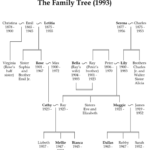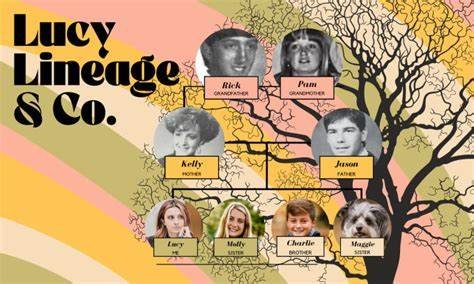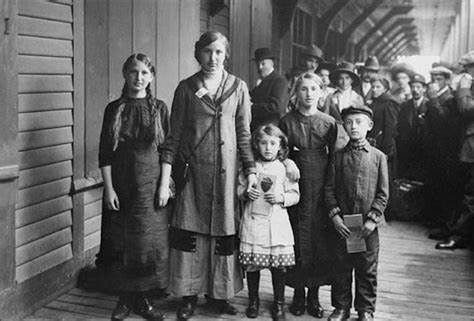Family names have long been more than just identifiers; they are carriers of heritage, tradition, and cultural significance. Whether inherited from ancient ancestors or reflecting geographical or occupational origins, family names are deeply intertwined with the cultural identity of individuals and communities. Exploring how family names influence cultural identity offers a fascinating insight into how we connect with our roots, traditions, and the larger societal forces that shape us.
1. Family Names as Cultural Markers
Family names often serve as powerful cultural markers that connect individuals to their ethnic or national heritage. For example, surnames like “Nguyen” in Vietnam, “Fernández” in Spain, or “O’Connor” in Ireland carry cultural meanings tied to the history, language, and customs of those regions. In many cultures, family names reflect the values, professions, or traditions of a family’s ancestors, revealing information about where people came from and what they did for a living. A surname can be a symbol of belonging to a particular ethnic group, giving individuals a sense of pride and continuity with their forebears.
2. Family Names and National Identity
In many cases, a family name is closely linked to national identity. The surname you carry often reveals your geographic roots and can reflect national history and migration patterns. For instance, many Jewish surnames were changed or adopted due to historical events such as persecution or migration. Similarly, during periods of colonialism, people from indigenous communities were often given family names by colonizers, which shifted their cultural identity in profound ways. Thus, family names can provide a tangible connection to national or regional history, helping individuals maintain a sense of identity even through generations of displacement or social change.
3. The Evolution of Family Names and Cultural Shifts
As cultures evolve, so too do family names. The transition from patronymic to hereditary surnames, for example, marked a significant cultural shift in many societies. In places like Scandinavia and parts of Russia, family names were often based on the father’s first name (e.g., “Johnson” meaning “son of John”). Over time, however, these names became fixed, representing not just paternal lineage but also belonging to a larger familial or cultural group. In some cultures, family names changed due to social, political, or economic reasons, such as migration or changes in ruling power. This evolution highlights how family names are shaped by broader societal trends and shifts in cultural identity.
4. Family Names and Language Preservation
In many cultures, family names play a critical role in the preservation of language. For instance, in communities that speak minority languages, family names often serve as one of the few lasting connections to that language, especially as the language fades from daily use. In some cases, surnames are passed down unchanged as part of the collective memory of the culture, safeguarding linguistic heritage. Conversely, the translation or alteration of surnames over time can signify cultural assimilation or the influence of dominant languages, highlighting how language and identity are interconnected.

5. Family Names and Social Status
Historically, family names were often used to distinguish social classes, occupations, and family wealth. In many cultures, noble families carried surnames that were passed down for generations, denoting a prestigious lineage or landownership. In contrast, commoners or working-class individuals might carry surnames based on their occupation or location, such as “Smith,” “Miller,” or “Baker.” These occupational surnames not only reflect social status but also serve as a reminder of how certain professions were once tied to one’s social identity. Even today, these names can evoke a sense of pride in the work or family history they represent.
6. Surnames as Symbols of Pride and Unity
For many people, their family name is a symbol of unity and pride. It represents a connection to a lineage of ancestors, a legacy that spans generations. This sense of pride is particularly strong in communities where family names are linked to historical events, struggles, or achievements. For example, African American families with surnames that were passed down through slavery often carry immense cultural significance as symbols of resilience and survival. Similarly, families who trace their ancestry back to notable figures or historical events may feel a deep connection to their past, reinforcing a sense of cultural identity tied to those achievements.
7. Family Names and Migration Patterns
Migration has also influenced cultural identity through family names. As people moved across borders, their surnames often adapted or changed in response to new languages, cultures, or circumstances. In some cases, surnames were altered to make them easier to pronounce or more fitting within a new cultural context. In the United States, for example, many immigrants anglicized their surnames upon arrival to better assimilate into American society. This shift can cause the family name to lose some of its original cultural meaning, though the underlying heritage still remains an essential part of the family’s identity.
8. The Role of Family Names in Modern Society
In the modern world, family names continue to play an important role in cultural identity, even as globalization and multiculturalism challenge traditional conceptions of lineage and ancestry. As people increasingly identify with multiple cultural backgrounds, family names can be a way of honoring diverse heritage. They offer individuals a sense of continuity and belonging, tying them to a larger, collective history that transcends generations and borders. Today, family names are often used as a source of pride, as they can connect individuals to a wide variety of cultural traditions and stories.
Conclusion
Family names are not just identifiers; they are windows into our cultural identity. From reflecting our ethnic heritage to preserving language and connecting us to historical events, family names serve as symbols of belonging and continuity. As we trace the history of our surnames, we uncover not only the stories of our ancestors but also the enduring cultural forces that shape who we are today. Understanding the influence of family names on cultural identity helps us appreciate the richness of our personal histories and the deeper connections we share with the world around us.











